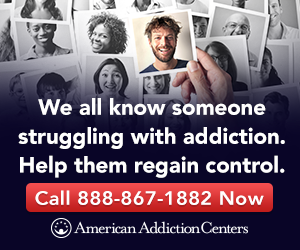
The Internet is a highly useful tool in everyday life, and detecting a computer addiction can be difficult, which is complicated by the fact that Internet Addiction has not been adopted by the DSM-V Classification system [8].
It is important to be educated on the signs and symptoms of an addiction and how that differs from healthy use of the internet.
The American Journal of Psychiatry defines internet addiction as three subtypes: Sexual Preoccupations, Gaming, and Email or Text Messaging [1]. These subtypes have four common components:
- Excessive use
- Withdrawal
- Tolerance
- Negative repercussions
When Computer Use Becomes Problematic
With the increase in technology computers, tablets, smartphones, and even smart watches, it is hard to disconnect from the e-world. Every person’s experience with the internet is different where some individuals rely heavily on the internet for their careers, or some use it to socialize with friends and family.
No matter how a person uses technology it becomes a problem when areas in the person’s life are neglected, such as work, school, or personal life [1]. A study in 2014 determined that 16% of 18-25 year olds use the Internet compulsively [7].
According to the National Institutes of Health, “the rewarding nature of the Internet may be responsible for the development of Internet Addiction [1].” Addictions are pleasurable in nature and activate the reward area in our brain that is linked to pleasure, which is linked to increased dopamine.
 NIH reports that the use of technology may provide users with multiple reward levels [1].
NIH reports that the use of technology may provide users with multiple reward levels [1].
According to the American Journal of Psychiatry, “Internet Addiction is the now the most serious health issue in South Korea, with approximately 10 million teenagers in China are considered Internet addicts [1].”
Understanding the Signs and Symptoms of Internet Addiction
Internet and Computer Addiction: Recognizing the Signs can be multilevel. Signs and symptoms of an Internet Addiction are as follows:
Behavioral [1]:
- Losing track of time spent online
- Experiencing difficulty completing tasks at home or work
- Isolation from friends and family
- Feeling defensive or guilty about Internet usage
- Experiencing a sense of euphoria when involved in online activities
Physical [1]:
- Strained vision
- Sleep problems or insomnia
- Carpal tunnel syndrome
- Significant weight loss or weight gain
- Severe headaches
Emotional [5]:
- Feelings of guilt or shame of Internet use
- Feelings of anxiety or depression increasing
- Irritability or mood changes
Detrimental Physical and Emotional Consequences
Internet over usage and dependence can be a source of chronic tension, compromised physical health, emotional distress, decreased performance professionally and academically, as well as decrease physical socialization and emotional intimacy [7].
Studies that have examined the extent to which excessive technology does to our brains, that neurologically our brain’s wiring is affected, even from an early age and technology access broadens [7]. Typically addicts are excessive in online usage, spending between 40-80 hours per week online, with some usage lasting up to 20 hours at one time.
Sleep patterns can be disrupted. In extreme cases, caffeine pills may be used to continue internet use. Sleep deprivation due to excessive online use can cause fatigue, impaired academic or occupational performance, may reduce the immune system [8].
There has been no one case to why an internet addiction develops. Internet addictions among teens are significantly increasing, and appear to be more common among teens who also struggle with depression, attention deficit disorders, anxiety, poor self-image, and self-esteem [5,6].
Teens who play Massively Multiplayer Online Role-Playing Games (MMORPGs), addiction can be greater due to the fact that the games do not have an end [6]. The user does not reach a point where the game is mastered or can be completed, so the urge or lure to return to the game and play a new ‘adventure’ can be addicting.
When addiction occurs, the rush of playing triggers dopamine that mimics those who are addicted to substances such as alcohol and drugs.
When deciding if someone has an Internet Addiction, professionals use the Internet Addiction Diagnostic Questionnaire (IADQ). If 5 or more of the criteria are met, it suggests an internet addiction. The criteria are as follows [5]:
- “Do you feel preoccupied with the Internet?
- Do you feel the need to use the Internet with increasing amounts of time in order to achieve satisfaction?
- Do you feel restless, moody, depressed, or irritable when attempting to cut down or stop Internet use?
- Do you stay online longer than originally intended?
- Have you jeopardized or risked the loss of significant relationships, job, educational or career opportunity because of the internet?
- Have you lied to family members, therapist, others to conceal the extent of involvement with the Internet?
- Do you use the Internet as a way of escaping from problems or relieving a dysphoric mood?”
 In conclusion, excessive internet use is unhealthy for any person, regardless of addiction or not.
In conclusion, excessive internet use is unhealthy for any person, regardless of addiction or not.
Being able to recognize the signs, especially in teens and young adults can help break the dependence cycle. Recognizing and obtaining treatment or therapy can be highly beneficial.
Treatment is typically based in Cognitive Behavioral Therapy and can be conducted both in outpatient and inpatient settings. Treatment can last between 1 month to several months, depending on the severity of the addiction.
Treatment focuses on gaining new coping skills, and learning to be without technology for the duration of treatment, then reincorporating its use back into daily life in a healthy way with help of a treatment team.
References:
[1]: Internet and Computer Addiction Treatment Program Options. (n.d.). Retrieved December, 2016, from http://www.psychguides.com/guides/internet-and-computer-addiction-treatment-program-options/
[2]: Center for Internet Addiction – Education and Treatment. (n.d.). Retrieved December, 2016, from http://netaddiction.com/
[3]: Steiner-Adair, C. (2015, July 17). Internet addiction: the next mental illness? (Opinion). Retrieved December, 2016, from http://www.cnn.com/2015/07/17/opinions/steiner-adair-internet-addiction/
[4]: Young, K., 2013. Internet Addiction: A New Clinical Phenomenon and Its Consequences. Center for Online Addiction.
 About the Author: Libby Lyons, MSW, LCSW, CEDS, is a Certified Eating Disorder Specialist (CEDS) who works with individuals and families in the area of eating disorders. Mrs. Lyons works in the metropolitan St. Louis area and has been practicing in the field for 11 years. Libby is also trained in Family-Based Therapy (FBT) to work with children-young adults to treat eating disorders. Mrs. Lyons has prior experience working with the United States Air Force, Saint Louis University, Operating Officer of a Private Practice, and currently works with both Saint Louis Behavioral Medicine Institute within their Eating Disorders Program and Fontbonne University
About the Author: Libby Lyons, MSW, LCSW, CEDS, is a Certified Eating Disorder Specialist (CEDS) who works with individuals and families in the area of eating disorders. Mrs. Lyons works in the metropolitan St. Louis area and has been practicing in the field for 11 years. Libby is also trained in Family-Based Therapy (FBT) to work with children-young adults to treat eating disorders. Mrs. Lyons has prior experience working with the United States Air Force, Saint Louis University, Operating Officer of a Private Practice, and currently works with both Saint Louis Behavioral Medicine Institute within their Eating Disorders Program and Fontbonne University
The opinions and views of our guest contributors are shared to provide a broad perspective of addictions. These are not necessarily the views of Addiction Hope, but an effort to offer discussion of various issues by different concerned individuals.
We at Addiction Hope understand that addictions result from a combination of environmental and genetic factors. If you or a loved one are suffering from an addiction, please know that there is hope for you, and seek immediate professional help.
Reviewed By: Jacquelyn Ekern, MS, LPC on June 28, 2017.
Published June 28, 2017, on AddictionHope.com

